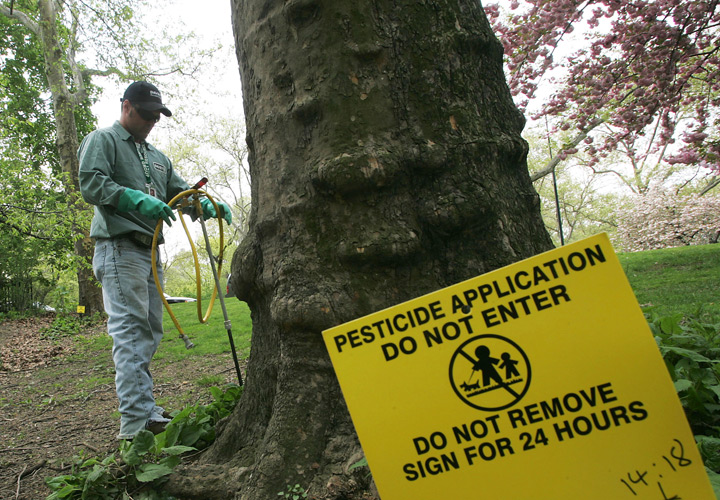A federal audit of the agency tasked with monitoring pesticide safety in Canada has found the regulator allowed potentially harmful chemicals to remain on the market for much longer than necessary in recent years, posing unacceptable risks to human health and the environment.

In a report tabled in the House of Commons on Tuesday, the federal Commissioner of the Environment and Sustainable Development, Julie Gelfand, noted that in one case, it took the Pest Management Regulatory Agency (PMRA) more than a decade to cancel the registration status of a pesticide and get it off the market after it was deemed unsafe.
That product, Phorate, was first registered in 1962 and used to protect crops from wireworm. After determining in 2004 that the active ingredient had “high acute toxicity,” the PMRA phased out its use on corn and lettuce crops. But it took until 2015 for Phorate to be phased out on potato crops, with the agency extending the deadline four times because farmers could not identify an alternative to combat wireworm on potatoes.
READ MORE: Pesticides in produce: best bang for your buck when buying organic
Phorate was just one example cited in Tuesday’s report, which was part of a broader package of audits conducted by Gelfand’s office.
Overall, the Pesticide Safety audit found it took the PMRA an average of five years to remove various pesticides from the market when it determined they posed unacceptable risks to human health or the environment.
- Train goes up in flames while rolling through London, Ont. Here’s what we know
- Budget 2024 failed to spark ‘political reboot’ for Liberals, polling suggests
- Wrong remains sent to ‘exhausted’ Canadian family after death on Cuba vacation
- Peel police chief met Sri Lankan officer a court says ‘participated’ in torture
The agency is also apparently falling behind on its overall schedule for re-evaluating older pesticides. Each pesticide on the Canadian market must be re-evaluated every 15 years, but the audit concluded that the PMRA “remained slow in completing re-evaluations of pesticides that were registered before 1995.”
The agency must pick up the pace, Gelfand noted.
Another area of concern involved the registration of new pesticide products. The agency can provide “conditional registration” and allow a pesticide to be sold and used while the agency is still assessing the product’s safety and value. Nine products remained conditionally registered for more than 10 years, the audit found, and continue to be used in spite of the fact that there is widespread concern about their effect on bees, other pollinators and broader ecosystems.
Last week, the PMRA announced that starting on June 1, 2016 it will no longer grant conditional registrations.
“With respect to conditional registrations, re-evaluations, special reviews, and cancellations of registrations, we concluded that the agency had not always acted in a timely manner to fulfill its statutory objective of preventing unacceptable risks to the health of Canadians and the environment from the use of pesticides,” the audit’s conclusion reads.
The gaps are particularly worrying at a time when pesticide use in Canada continues to grow, Gelfand noted. According to Statistics Canada, the area of farmland treated with herbicides, insecticides and fungicides has increased by 3 per cent, 42 per cent, and then 114 per cent, respectively, between 2001 and 2011.




Comments